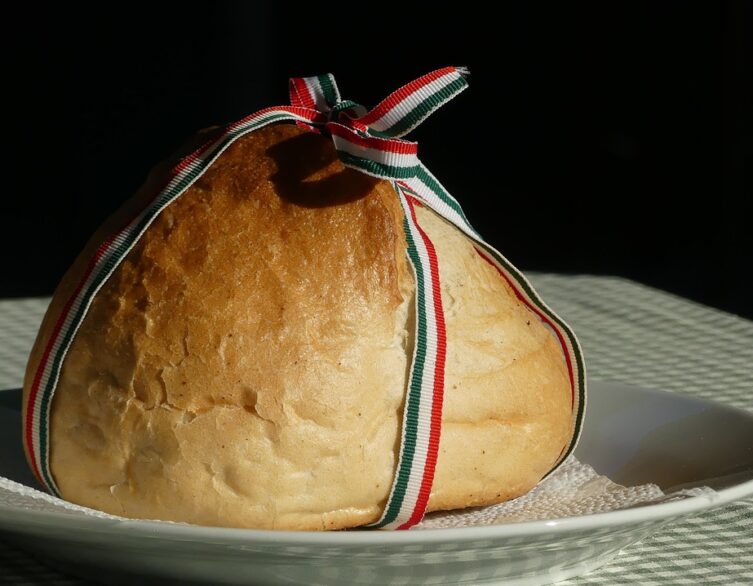National Holidays in Hungary

Hungary, a country rich in history and tradition, celebrates several national holidays throughout the year. These holidays are an integral part of Hungarian culture, providing opportunities for citizens to come together, honor their heritage, and enjoy festive celebrations.
National holidays
On New Year’s Day on January 1st Hungarians welcome the new year with parties, fireworks, and traditional dishes like lentil soup and pork, believed to bring luck and fortune. The celebrations are particularly grand in the capital city, Budapest, with street festivals and live music.
March 15th marks the Memorial Day of the 1848-49 Hungarian Revolution and War of Independence. People wear a rosette called “kokárda” with the colors of the Hungarian flag and attend ceremonial speeches and processions in major cities. This day commemorates the brave efforts of Hungarians who fought for their independence.
Easter is another important holiday, celebrated with unique traditions. On Easter Monday, boys sprinkle water or perfume on girls and recite funny poems, while girls treat them with homemade cakes and hand-painted eggs. Families gather for a traditional Easter Sunday lunch, typically featuring smoked ham and hard-boiled eggs.
Best deals of Budapest
May 1st, known as Labor Day, is a spring holiday when Hungarians enjoy barbecues and outdoor activities. Men also surprise their beloved ones by decorating a tree branch with colorful ribbons and fixing it to their girlfriends’ fences as a symbol of love.
Pentecost Sunday and Pentecost Monday have been official public holidays in Hungary since 1993. These religious holidays, celebrated seven weeks after Easter, mark the descent of the Holy Spirit upon the apostles in Christian tradition. Hungarians observe Pentecost Sunday with special church services, while Pentecost Monday extends the celebration into a long weekend that families often spend enjoying outdoor activities and visiting relatives. The establishment of these holidays as official public observances reflects Hungary’s recognition of its Christian heritage and provides citizens with an important break during the spring season.
August 20th, State Foundation Day, commemorates the founding of the Hungarian state by King Stephen I over a thousand years ago. Festivities are held in every city, with street vendors, traditional food, handicraft markets, and a spectacular fireworks display on the banks of the Danube in the evening. This day is also the Festival of the New Bread. This date holds a special meaning for Hungarians as it marks the end of the grain harvest and the baking of the first bread from the freshly harvested wheat.
October 23rd, National Day, celebrates the declaration of the Hungarian Republic and commemorates the 1956 revolution against Soviet rule. Ceremonial speeches are delivered by city mayors, and people pay tribute to those who fought for Hungary’s freedom.
All Saints’ Day on November 1st is a day for Hungarians to remember their departed loved ones. Families visit cemeteries, bringing wreaths and flowers, and light candles on the tombs, creating a beautiful and solemn atmosphere.
Christmas, celebrated on December 25th and 26th, is a time for family gatherings, gift-giving, and traditional meals. Christmas Eve is spent decorating the tree and attending church services, while Christmas Day involves a festive lunch with dishes like stuffed cabbage and poppy seed cake.
The holidays’ effect on travelling
These national holidays not only provide a break from daily routines but also serve as reminders of Hungary’s rich history and cultural heritage. They bring people together, strengthening the sense of national identity and pride. Whether it’s through grand celebrations, traditional customs, or moments of remembrance, Hungary’s national holidays are an essential part of the country’s vibrant and diverse culture.
One of the most significant effects of national holidays on tourists is the potential for closures of shops, restaurants, and attractions. Many businesses shut down on these days, which can limit the options available to visitors. It is essential for tourists to plan ahead and check the opening hours of the places they wish to visit to avoid disappointment.
Public transportation schedules may also be affected during national holidays. Buses, trams, and metros often operate on a reduced timetable or may not run at all. This can make it challenging for tourists to navigate the cities and reach their desired destinations. It is advisable to research the transportation schedules in advance and plan accordingly.
On the other hand, national holidays can also provide unique opportunities for tourists to experience Hungarian culture and traditions firsthand. Many cities and towns host special events, such as parades, concerts, and markets, which can be fascinating for visitors to attend. However, tourists should also be aware that during these holidays, popular attractions may be more crowded than usual. Many locals take advantage of the time off to visit museums, parks, and other points of interest, which can lead to longer queues and wait times. It is recommended to book tickets in advance, if possible, and to arrive early to avoid the crowds.
Hungary’s national holidays can have both positive and negative impacts on tourists’ experiences. While closures and reduced transportation services may cause some inconvenience, these holidays also provide a unique glimpse into Hungarian culture and history. By planning ahead, being flexible, and embracing the festive atmosphere, tourists can make the most of their visit to Hungary, even during the busiest holiday periods.












